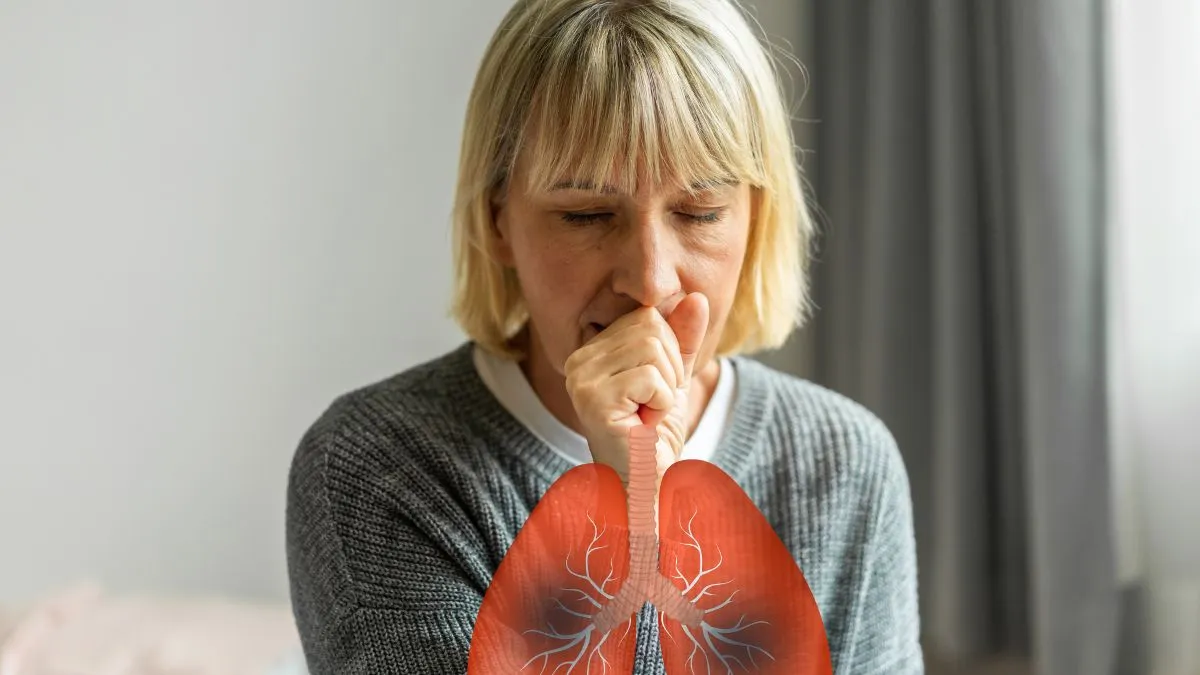- By Bornika Das
- Thu, 23 Oct 2025 06:12 PM (IST)
- Source:JND
Lung cancer continues to be one of the major causes of cancer deaths globally, and its effect on women is a cause for concern. Notwithstanding advancements in treatment and diagnosis, most women ignore early indicators such as a chronic cough, which is an early sign of the condition. Physicians point out that women experience minimal signs that they confuse with typical respiratory complications, postponing important medical care. Awareness of these symptoms and early consultations are critical for early detection and enhancing survival rates. Knowledge of the distinctive risk factors and signs in women can be a lifesaver.
A persistent cough that won't subside may appear harmless but it deserves careful medical assessment, particularly in women who have risk factors such as smoking, secondhand smoke exposure, or family history. Neglecting such a cough may result in delayed diagnosis of late-stage lung cancer when interventions become less effective. Women must take an active interest in respiratory well-being and consult a doctor if the symptoms remain for more than two to three weeks. In conversation with The Daily Jagran, Dr. Monika Pansari, Consultant - Breast and Gynaecology Onco-surgeon (Surgical Oncologist) and Robotic Surgeon, Manipal Hospital, Kanakapura Road), explains how ignoring a lingering cough could be a hidden cause of lung cancer in women.
When A Cough Isn’t Just A Cough
A chronic cough is one of the most typical symptoms of lung cancer. And yet many women will brush it off as a standard cold, allergies or even stress. By the time they opt for medical advice, it might be too late in disease progression. In other words, the earliest signs may be hiding in plain sight. Dr. Monika Pansari states, “It is important to stress enough on the necessity of not ignoring a lingering cough that lasts more than a few weeks, especially when it is accompanied by chest pain, blood-streaked sputum, unexplained weight loss or breathlessness.”
Recommended For You
ALSO READ: Is Teen Vaping Setting The Stage For Lung Cancer Spike?
Understanding The Rising Risk
The rising rates of lung cancer in women aren’t happening by chance. Urban pollution and the cumulative effects of passive smoking are the two most important risk factors. But lifestyle is not enough to explain it all. Genes are also a big factor. Dr. Monika Pansari mentions, “Some women are more susceptible to lung cancer than are others, regardless of their environment or habits; this risk factor can also be inherited, similar to other genetic factors.” These environmental and genetic elements highlight the critical need for awareness and vigilance.

Risks Of Lung Cancer In Women (Image Credits: Canva)
Early Detection Saves Lives
Here’s the good news - when lung cancer is caught early, its treatment can be much more successful. Many women live long, healthy lives after an early-stage diagnosis and treatment. For those at increased risk, low-dose CT scans are an effective screening tool, but awareness is the beginning. Acknowledging that lung cancer may, and does, come on a woman is critical to changing lives.
ALSO READ: Who Is More At Risk For Lung Cancer- Men or Women? Know From Doctor
Encouraging women not to ignore persistent respiratory symptoms. Sometimes all it takes is a quick consultation and some timely tests, if needed. Cancer of the lung is not only a male disease; it is a human one. Taking care of your health really starts with the simple things, listening one’s body and taking steps if something doesn’t feel right - such as a cough that won’t go away. It is awareness that saves, not fear.






